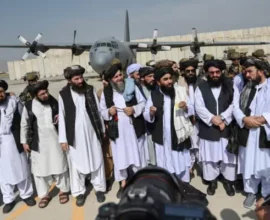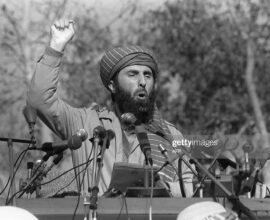The Return of Taliban
After the unfortunate 9/11, the Americans invaded Afghanistan, dislodging The Taliban Regime, which had been recognized by Pakistan and the UAE. Little did the world know that the course would be reversed in a matter of two decades, forcing the Americans, having suffered immense economic and human loss, to exit Afghanistan. Since Joe Biden has announced the withdrawal in September, which is a symbolic, signaling to pull out the troops on the same date when they marched into Afghanistan.
Defending his decision, Biden remarked,: “With the terror threat now in many places, keeping thousands of troops grounded and concentrated in just one country and across the billions [of dollars spent] each year makes little sense to me and to our leaders.” The post withdrawal scenario begs some pertinent questions: “what would be the prospects and problems for Talibans in Afghanistan? How would their im(probable) return impact Pakistan?
As regards the first question, it is amply clear that the Talibans would not have a smooth sail, even after the last American soldier departs from Afghanistan. The students of history know that Afghanistan has been a complex country, ruled by various lords, controlling the areas under their influence. There are around forty, big and small, groups, operating in various of Afghanistan. They are well equipped with modern weaponry, courtesy to generous amount of weapons left by the Russians, while leaving Afghanistan in early 90s. In September, the Americans are not likely to drag their tanks, rockets and missiles along . The likely recipients of these weapons would be the Afghan government (which is ironically not a party to the agreement). Other might end up in the hands of various militias, paving way for yet another fierce. These tribes, e not a party to agreement, would prefer war to peace to protect and promote their interests.
Besides, other regional actors: India and Iran would certainly keep on protecting their interest and equipping those forces which are anti Pakistan. This support would, without a doubt, keep on challenging the Talibans and to cow them down would be an enormous task for them.
Apropos to mention that the recent agreement signed by Russians and Chinese signify that Afghanistan holds immense strategic relevance for them as well. The Talibans would have to allay the concerns of China(the emerging economic and military rival of the US) and Russia as well. It means the Talibans would have to rely on : both military might and wisdom to cope with the enormity of the tasks, looming ahead.
Since Pakistan shares a treacherous 2,670-kilometer border with Afghanistan, the fall out and effect would certainly spillover to Pakistan. Though Pakistan has done well by erecting fence at Afghan border, yet the mountainous terrain remains a potential safe haven for various actors to sneak in and out to Pakistan: a country which has already paid a heavy price ,economic and human, both. There is a strong possibility of arrival of more refugees which would compound the national security issues for Pakistan, which cannot afford yet another influx of refugees: it has been hosting more than three millions for decades.
In order to ward off the these challenges, Pakistan ought to expedite the process of giving smart cards to Afghan refugees and cancel the id cards of those who have obtained them ,using political and monetary channels. This would give a clear picture to the government and state institutions .Pakistan would also need to speed up fencing the Afghan border to curtail the issues. There are numerous gorges and depressions along the Afghan border where small reservoirs can be built, using scant resources .The proposed construction would help Pakistan improve defense, forcing the Afghans to push their posts back. In a matter of a decade, the stored water would usher an era of greenery and cultivation in the adjoining areas.
The establishments of small trade zones along the border, engaging the locals, would curtail smuggling and earn handsome revenues for both countries and usher an era of economic prosperity and alleviate poverty.
The challenges lying ahead might appear to be unsurmountable, but strong political and military resolve, would of course, do better. Is Pakistan ready to brace the issues raised? Can the return of Taliban alter geo politic-al milieu of the region? The coming months would address and demystify these challenges.
The writer is an academic based in Islamabad. Sliklight55@gmail.com





